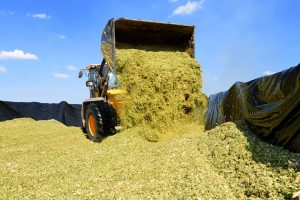A NEW study performed by researchers from Cambridge University has recommended that new tests are needed to make vaccination against bovine tuberculosis (bovine TB). The report points out that in order for vaccination to be viable, the number of false positives from these tests must be significantly reduced. The scientists have said the reduction in false positives in cattle is feasible, but that a vaccination programme would be challenging. Despite an intensive, and costly, control program in the United Kingdom, bovine TB persists. Although vaccinating cattle with the human BCG vaccine offers some protection in cattle, doing so is currently illegal within the EU, due to the vaccine’s interference with the skin test used for surveillance.
The Cambridge team worked alongside researchers at the government’s Animal & Plant Health Agency (APHA), to show the importance of specificity – the proportion of uninfected animals that test negative – to making disease control strategies work. The skin test currently in use has a very high estimated specificity of over 99.97%, which means that less than three animals in 10,000 will test falsely positive. However, the test as carried out in Great Britain is thought to have at best an 80% sensitivity – a measure of how many infected animals will correctly test positive – missing around 1 in 5 bovine TB-infected cattle.
It is used to determine if animals, herds and countries are officially free of bovine TB. Vaccinated animals that test positive have to be treated as infected animals. Under European law, if an animal tests positive, it must be slaughtered. The remaining herd is put under movement restrictions and tested repeatedly using both the skin test and post-mortem examinations until it can be shown to be officially clear of infection. Researchers said the duration of movement restrictions is important due to the considerable economic burden they place on farms. Also, the cost to the UK government alone is estimated to amount to half a billion pounds over the last decade; this cost includes visits to farms by veterinarians, tests carried out and compensation for the slaughter of infected animals. For vaccination to be economically viable and acceptable within the EU, the benefits of vaccination must be great enough to outweigh any increase in testing.
A new generation of diagnostic tests, known as ‘Differentiate Vaccinated from Infected Animals’ (DIVA) tests, has opened up the opportunity for the use of BCG within current control programmes. The EU has recently outlined the requirements for changes in legislation to allow cattle vaccination and a recent report from its European Food Safety Authority (EFSA) emphasized the importance of demonstrating that BCG vaccine works, and that DIVA tests can be shown to perform in large-scale field trials. However, a key factor overlooked in the EU report was that the currently viable DIVA tests have a lower specificity than tuberculin testing; this could lead to vaccinated herds being unable to escape restrictions once a single test-positive animal has been detected, as the more times the herd is tested, the more likely the test is to record a false positive.
In their study, the researchers from Cambridge and APHA used herd level models to show that the level of infection can be reduced in vaccinated herds even when DIVA sensitivity is lower than tuberculin skin testing. However, in order to see this benefit of vaccination over 99.85% of uninfected animals will need to test negative in the DIVA test. This improved accuracy will be necessary to avoid increasing the duration of breakdowns and the number of animals condemned. Using data from previous tests on cattle, the researchers said this level of ‘specificity’ is achievable, though they said there will be challenges associated with improving accuracy. The researchers said, “Currently, there is no gold standard test to diagnose TB in cattle.
Cattle that test positive are slaughtered immediately and therefore have rarely developed any physical signs – in fact, only around a half of animals examined post-mortem show physical signs of infection even if they are, indeed, infected.” Dr Andrew Conlan from the Department of Veterinary Medicine at the University of Cambridge explained “In order for vaccination to be viable, we will need a DIVA test that has extremely high specificity. If the specificity is not good enough, the test will find false positives, leading to restrictions being put in place and a significant financial burden for the farmer. “But validating a test that has a very high specificity will in itself be an enormous challenge. We would potentially need to vaccinate, test and kill a large number of animals in order to be confident the test is accurate. This would be very expensive.”
















Add Comment